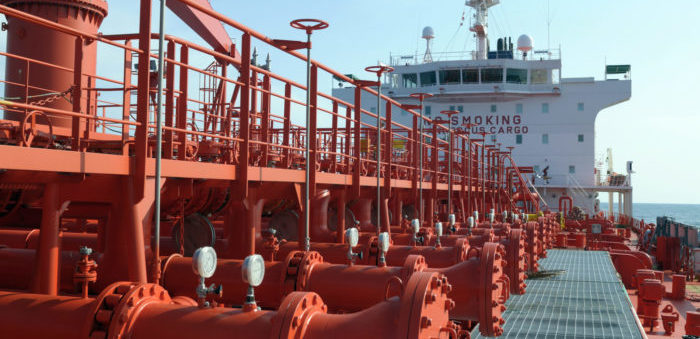OCIMF (Oil Companies International Marine Forum) informed that it has withdrawn a series of books and information papers. The publications seek help the safe and environmentally responsible operation of oil tankers, terminals and offshore support vessels, promoting continuous improvement in standards of design and operation.
The publications withdrawn are the following:
- A guide to the International Oil Pollution Compensation Regimes (2000);
- Briefing paper for OCIMF Member Chartering and Vetting groups- The use of large tankers in seasonal first-year ice or severe sub-zero conditions (2009);
- Hawser test report (1982);
- Contingency planning and crew response guide for gas carrier damage at sea and in port approaches (1999 with SIGTTO and ICS);
- Energy efficiency design index (EEDI) (2001);
- Guide to contingency planning for the gas carrier alongside and within port limits (1999 with SIGTTO and ICS).
In 2019 so far, OCIMF has made the following publications:
- Transfer of Personnel by Crane Between Vessels: The guide focuses on the use of onboard cranes for personnel transfer. This paper addresses those risks and provides guidance that should be used in the risk assessment process to determine the method of transfer, comparing transfers using a crane to transfers using a pilot ladder and transfers using an accommodation ladder.
- Deck Cargo Management Onboard Offshore Vessels: The paper includes risk-based guidance as well as best practices on how to manage deck cargo in the offshore marine industry. It aims to help vessel Masters, offshore industry personnel and vessel crews adopt safe working practices for deck cargo handling between shore base operations, offshore facilities and vessels.
- Volatile Organic Compound Emissions from Cargo Systems on Oil Tankers: The paper includes information on regulations, equipment, safety concerns, training and other design and installation considerations that will help operators better understand the technologies and methods available for controlling these emissions.
- Dynamic Torsion Load Tests for Offshore Hoses: The guide introduced several performance requirements regarding hose construction, acceptance tests, inspection procedures and technical requirements for prototype hose approval.
- Ship Security – Hull Vulnerability Study: This information paper focuses on the results of the study in relation to the protection of crew and vessels. The results provide mitigating measures that can be applied to both existing and new build vessels.
In addition, the fourth edition of OCIMF Mooring Equipment Guidelines (MEG4) was issued in July 2018. SQE Marine has provided a quick update on what has been introduced.
The fourth edition has been extensively updated and addresses:
- Lessons learned from incidents, most notably from failures of HMSF mooring lines;
- Human-centred mooring designs and human factors in mooring operations;
- New and in-development regulations and guidance from the IMO on the safety of mooring;
- Alternative mooring technologies and how they can be incorporated safely into the design of mooring systems both for ships and terminals.
Last week, Intertanko launched new guidance on Mooring System Management Plans and Line Management Plans, to assist operators ensure compliance with MEG4 and address the questions in Vessel Inspection Questionnaire (VIQ7).





























































